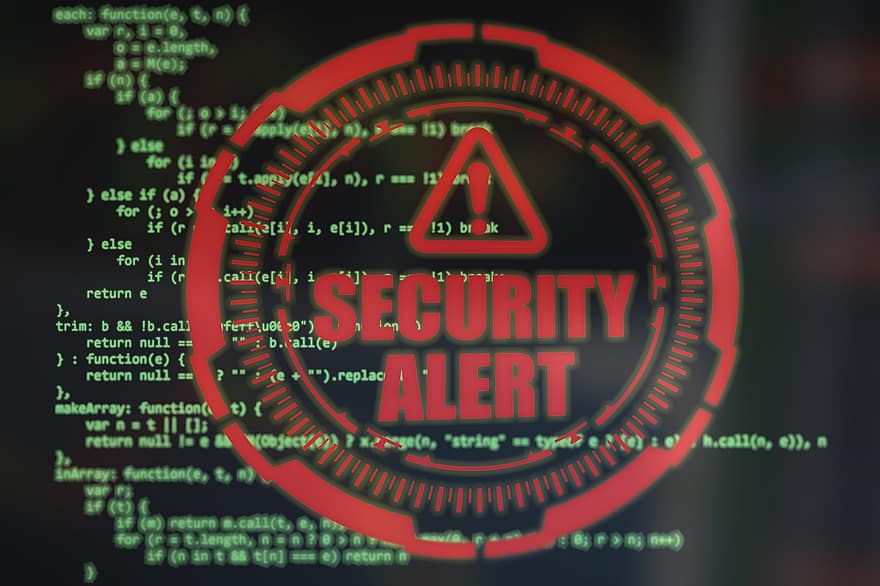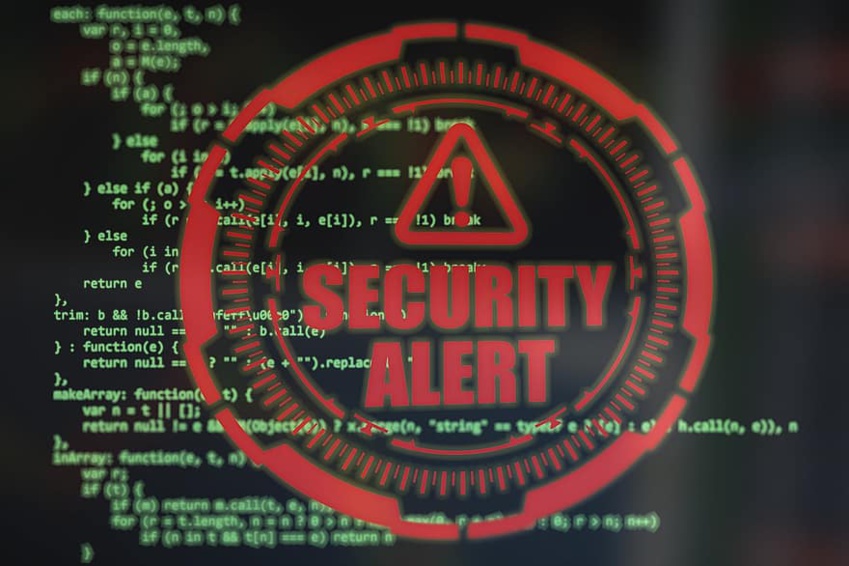The European Commission and Interpol both indicate that there is an increased risk of cybercrime during the coronavirus pandemic. The rise in attacks comes as fraudsters capitalise on virus fears and the greater security exposure of companies and individuals who are now operating far more through the internet as a result of national stay-at-home orders. Combined with modern trends in moving towards online banking and digital payments, citizens are financially vulnerable.
Warnings have come from numerous governments in Europe and from around the world. In the US, authorities grapple with an incidence of phishing attacks. Scammers make use of fake emails pertaining to be from the World Health Organization or the Centers for Disease Control in order to trick people into downloading computer viruses which seek out their online banking details.
The International Criminal Police Organization, Interpol also warned that even stretched hospitals might be targeted with ransomware. This was the case in Czech Republic, which reported a cyberattack on Brno University Hospital. The failure of its IT system led to the disruption of surgery schedules and the ability of its staff to deal effectively with the pressures of the virus. In ransomware attacks, scammers seek to capture vital data before blackmailing their victims into handing over money.
In the UK, police revealed at the start of March that coronavirus scammers had already tricked the public into giving up £800,000 through various illegal strategies.
In India, police recently launched an investigation into the scammer who tried to sell The Statue of Unity for $4 billion online, claiming to be representing local authorities. This is the most eye-brow raising example of an increase in cybercrime in India of 86 percent.
Staying safe
With the risk from a rise in phishing attacks and other opportunistic threats, combined with the number of workers now operating from their homes, businesses and individuals are at more risk than ever before.
“[A] large, immediate migration of people from enterprise and university networks that are closely monitored and secured, to largely unmonitored and often unsecure home Wi-Fi networks, creates a very large target of opportunity for cybercriminals,” said Chris Hazelton, the director of security at the cyber firm Lookout.
What people need to do is be more vigilant than normal. Governments and national agencies are encouraging everyone to follow good online security rules, avoiding clicking on links in emails and never disclosing banking or personal details to the authors of unsolicited text messages or emails.
Protecting assets
Not everyone can follow the lead of investors who are buying up long-term bonds and gold, seeking out financial “safe harbours” during the crisis.
In Germany, however, the public response has been to start keeping personal cash reserves, with similar trends noted in the US.
There are, of course, a number of advantages to keeping a hold of your money.
Firstly, the easiest way to protect money from hackers is to keep it offline: they cannot hack cash. If you use cash more regularly, you also reduce your exposure to hackers by lowering your online banking presence.
Secondly, as a more general rule, you have greater control and certainty about your spending with cash. This can be vital in a crisis, when the risks of losing your job unexpectedly are higher than normal, and when the economy is heading into worrying territory.
If a recession does hit, having cash on hand can be a powerful safety mechanism.
“In the event a recession happens and your company downsizes, the emergency reserve can bridge the gap during your unemployment and ensure that you are not using credit cards or your retirement account to fund your living expenses,” explained Matthew Schwartz, a financial planner.
Furthermore, it your money is in the bank when it fails, your savings disappear with the bank. It is useful and reassuring to have liquidity in times of crisis.
It is for this reason that the US has seen a shift in how people are holding their assets, with a broad conversion of stocks to cash equivalents and an increase in ATM withdrawals, contributing to a greater quantity of cash in circulation.
While cash payments have been targeted in smear campaigns by payments companies during the crisis, security risks are largely only an issue of cybersecurity, and virus concerns about the safety of contact with cash have been widely allayed by health experts.
Given that coronavirus is not thought to be spread by objects like cash any more than card readers or public handrails, avoiding the use of cash on these grounds is not generally deemed logical. Furthermore, if not leveraged, people do miss out on the many benefits of spending in cash — and on the resilience it provides from hackers.
Warnings have come from numerous governments in Europe and from around the world. In the US, authorities grapple with an incidence of phishing attacks. Scammers make use of fake emails pertaining to be from the World Health Organization or the Centers for Disease Control in order to trick people into downloading computer viruses which seek out their online banking details.
The International Criminal Police Organization, Interpol also warned that even stretched hospitals might be targeted with ransomware. This was the case in Czech Republic, which reported a cyberattack on Brno University Hospital. The failure of its IT system led to the disruption of surgery schedules and the ability of its staff to deal effectively with the pressures of the virus. In ransomware attacks, scammers seek to capture vital data before blackmailing their victims into handing over money.
In the UK, police revealed at the start of March that coronavirus scammers had already tricked the public into giving up £800,000 through various illegal strategies.
In India, police recently launched an investigation into the scammer who tried to sell The Statue of Unity for $4 billion online, claiming to be representing local authorities. This is the most eye-brow raising example of an increase in cybercrime in India of 86 percent.
Staying safe
With the risk from a rise in phishing attacks and other opportunistic threats, combined with the number of workers now operating from their homes, businesses and individuals are at more risk than ever before.
“[A] large, immediate migration of people from enterprise and university networks that are closely monitored and secured, to largely unmonitored and often unsecure home Wi-Fi networks, creates a very large target of opportunity for cybercriminals,” said Chris Hazelton, the director of security at the cyber firm Lookout.
What people need to do is be more vigilant than normal. Governments and national agencies are encouraging everyone to follow good online security rules, avoiding clicking on links in emails and never disclosing banking or personal details to the authors of unsolicited text messages or emails.
Protecting assets
Not everyone can follow the lead of investors who are buying up long-term bonds and gold, seeking out financial “safe harbours” during the crisis.
In Germany, however, the public response has been to start keeping personal cash reserves, with similar trends noted in the US.
There are, of course, a number of advantages to keeping a hold of your money.
Firstly, the easiest way to protect money from hackers is to keep it offline: they cannot hack cash. If you use cash more regularly, you also reduce your exposure to hackers by lowering your online banking presence.
Secondly, as a more general rule, you have greater control and certainty about your spending with cash. This can be vital in a crisis, when the risks of losing your job unexpectedly are higher than normal, and when the economy is heading into worrying territory.
If a recession does hit, having cash on hand can be a powerful safety mechanism.
“In the event a recession happens and your company downsizes, the emergency reserve can bridge the gap during your unemployment and ensure that you are not using credit cards or your retirement account to fund your living expenses,” explained Matthew Schwartz, a financial planner.
Furthermore, it your money is in the bank when it fails, your savings disappear with the bank. It is useful and reassuring to have liquidity in times of crisis.
It is for this reason that the US has seen a shift in how people are holding their assets, with a broad conversion of stocks to cash equivalents and an increase in ATM withdrawals, contributing to a greater quantity of cash in circulation.
While cash payments have been targeted in smear campaigns by payments companies during the crisis, security risks are largely only an issue of cybersecurity, and virus concerns about the safety of contact with cash have been widely allayed by health experts.
Given that coronavirus is not thought to be spread by objects like cash any more than card readers or public handrails, avoiding the use of cash on these grounds is not generally deemed logical. Furthermore, if not leveraged, people do miss out on the many benefits of spending in cash — and on the resilience it provides from hackers.


 How scammers and thieves ride the coronavirus wave
How scammers and thieves ride the coronavirus wave





 Companies
Companies